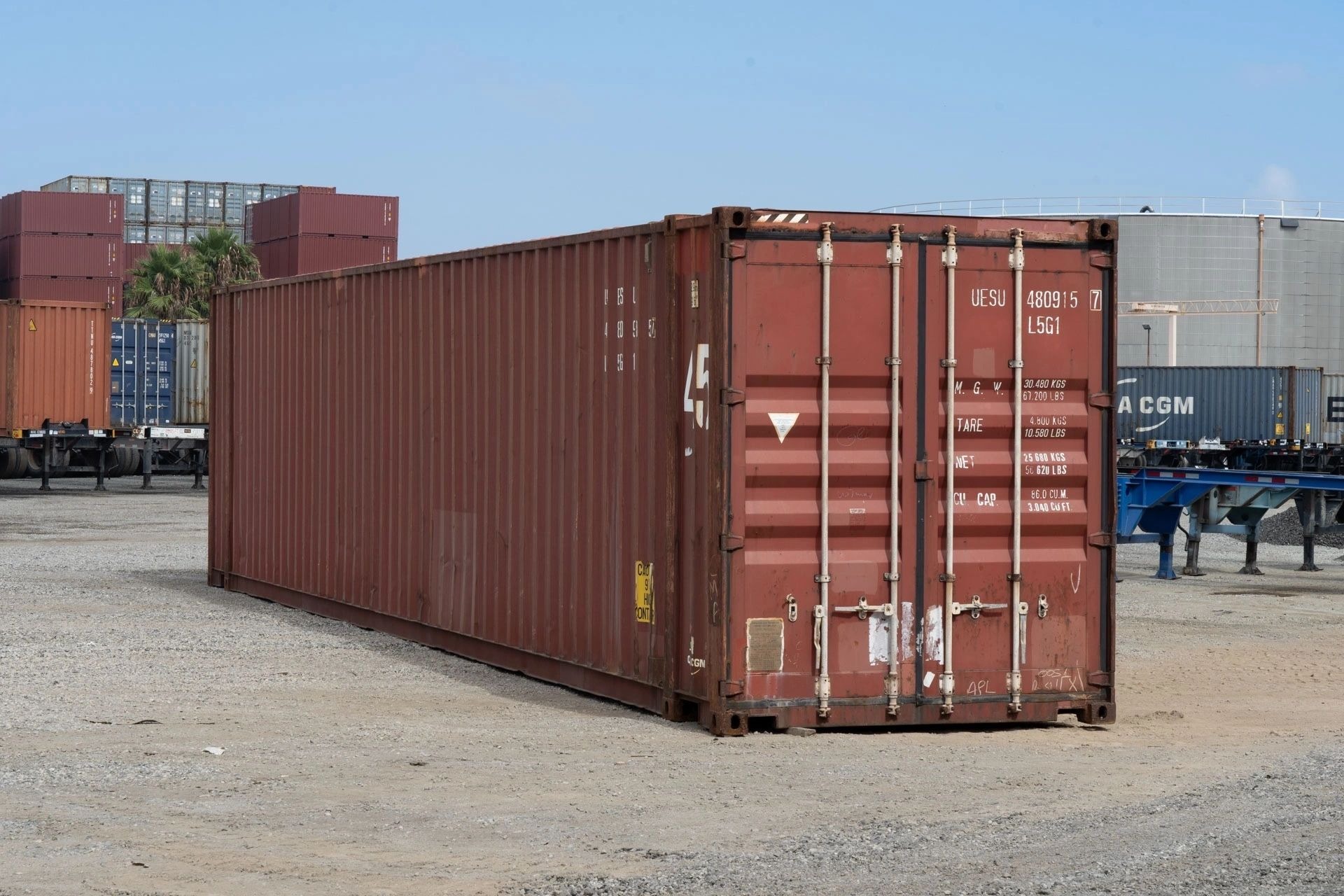A Productive Rant About Buy Used Shipping Containers

The Ultimate Guide to Buying Used Shipping Containers: A Sustainable Investment
Over the last few years, the interest in buying used shipping containers has risen, driven by their adaptability and sustainability. From ingenious housing solutions to storage spaces for organizations, these containers offer benefits that extend beyond traditional usages. In this guide, we will explore the advantages of acquiring used shipping containers, pointers for finding premium options, and responses to some frequently asked concerns.
Why Buy Used Shipping Containers?
1. Cost-efficient Solutions
Among the most compelling reasons to buy used shipping containers is cost savings. New containers can be quite costly, often ranging from ₤ 3,000 to ₤ 5,000. In contrast, used containers can be acquired at a fraction of that cost, generally in between ₤ 1,200 and ₤ 3,000 depending upon their size, condition, and age.
2. Sustainability
Purchasing used shipping containers is an ecologically friendly choice. They repurpose products that would otherwise add to land fill waste, allowing for a more sustainable approach to construction and storage.
3. Adaptability
Shipping containers can serve a wide variety of purposes:
- Storage Units: Ideal for companies wanting to expand their storage capacity.
- Office Spaces: An affordable solution for short-lived or long-term office setups.
- Pop-up Shops or Cafes: Mobile companies can love transformed containers.
- Residential Homes: Increasingly, people are opting for container homes due to their price and effectiveness.
4. Toughness
Created to withstand severe marine environments, used shipping containers are exceptionally long lasting and weather-resistant. Their steel structure suggests they can withstand difficult conditions, making them an outstanding option for different applications.
Factors to Consider Before Buying
Before buying a used shipping container, prospective buyers need to consider a number of key factors:
| Factor | Description |
|---|---|
| Condition | Check for any signs of damage, rust, or structural concerns. |
| Size | Shipping containers usually come in 20 and 40 feet lengths, so identify what size fits your requirements. |
| Purpose | Make sure that the container you select fits your designated function, whether for storage, living, or business. |
| Place | Think about the logistics of transporting the container to your wanted place. |
| Regulatory Compliance | Inspect regional zoning laws and regulations to guarantee you can position a shipping container on your residential or commercial property or utilize it as intended. |
Where to Buy Used Shipping Containers
Used shipping containers are available from various sources:
1. Container Depots
Container depots often sell containers that have been retired from shipping fleets. They might use a choice of used containers in numerous conditions.
2. Online Marketplaces
Sites like eBay, Craigslist, or specialized online container sellers have actually listings for used containers, often at competitive prices.
3. Regional Shipping Companies
Some shipping companies offer their used containers straight to the public. It may be worthwhile to reach out to regional services involved in shipping or logistics.
4. Auctions
Occasionally, shipping containers show up for sale at liquidation or auction events, potentially enabling significant savings.
5. Container Brokers
These professionals concentrate on connecting purchasers with sellers and can assist browse the purchasing process, ensuring a smoother deal.
How to Inspect a Used Shipping Container
When checking a used shipping container, consider the following list:
| Inspection Checkpoint | Notes |
|---|---|
| Exterior Condition | Look for damages, rust, and paint condition. |
| Interior Condition | Examine for visible signs of damage or mold. |
| Flooring | Ensure that the floor covering is undamaged and stable. |
| Doors and Locks | Examine if doors open efficiently and locks work. |
| Ventilation | Verify ventilation alternatives if meant for living or storage. |
Pricing Overview
Here's a rates table to offer a concept of the costs associated with various kinds of used shipping containers:
| Container Type | Typical Price Range |
|---|---|
| Standard 20' Container | ₤ 1,200 - ₤ 2,500 |
| Standard 40' Container | ₤ 2,500 - ₤ 4,000 |
| High Cube 20' Container | ₤ 1,500 - ₤ 3,000 |
| High Cube 40' Container | ₤ 3,000 - ₤ 5,500 |
| Custom Containers | Varies considerably; typically starts at ₤ 3,000 |
Regularly Asked Questions
Q1: Can I personalize a used shipping container?
Yes, numerous companies provide personalization options for used shipping containers, permitting you to add windows, doors, insulation, and more.
Q2: Are used shipping containers safe for property use?
Normally, yes. However, you need to make sure that interiors are properly cleaned and any dangerous materials are removed. Shipping Containers For Sale is always best to seek advice from specialists when making conversions for habitation.
Q3: How much does it cost to provide a used shipping container?
Delivery expenses can differ extensively based upon distance and logistics, usually varying from ₤ 100 to ₤ 500. It is necessary to get quotes from transport companies before your purchase.
Q4: What can I do if I discover damage after the purchase?
If you inspect a container and discover concealed damages after the purchase, get in touch with the seller instantly. Numerous sellers offer a return policy or may cover minor repair work, especially if you arranged the sale through a broker.
Q5: Do I need a permit to position a shipping container on my property?
This extremely depends upon your regional zoning laws. Some locations have rigorous regulations regarding where and how shipping containers can be used, so always talk to regional authorities before proceeding.
Purchasing a used shipping container can be a clever, cost-effective option for a wide variety of applications. With mindful factor to consider and a bit of research study, prospective purchasers can find containers that fulfill their requirements while adding to sustainable practices. Whether it's for storage, innovative structure solutions, or business ventures, the right shipping container can be a valuable financial investment.

